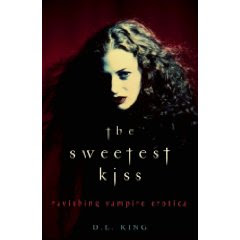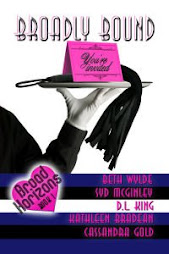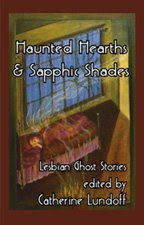For those of you outside the geek loop, speculative fiction is fantasy or science fiction.
I'm a great fan of speculative fiction. Dune, Altered Carbon, Snow Crash, Never Let Me Go (shelved as literary fiction, but a great, subtle story that examines what it means to be human - which is at the heart of a lot of great speculative fiction), Caves of Steel, Illium, Pattern Recognition, Left Hand of Darkness, the Liaden Universe novels, Kiln People, 20,000 Leagues Under the Sea, The Vorkosigan novels... the list of books I treasure goes on. Of course, whenever I'm at a science fiction convention, I'm surrounded by people who have read much more in the genre and I always feel as if I'm missing a lot of great stuff, but who has time to read it all?
I've been kicking around the idea for a speculative fiction story for a while. It came to me just days after the close of submissions for a GLBT science fiction
anthology edited by Greg Herren. I hate it when that happens. But it's given me a lot of time to kick around the idea and see if I truly had something. I'd probably still be pondering that if two new submission deadlines weren't looming. So I sat down today and started to work on it.
Speculative fiction is an interesting challenge. Faced with the task of showing a created world, beginning writers often resort to "the dreaded info dump." It usually happens in the first chapter. The writer steps outside the immediate story and explains the technology or the civilization, sometimes at length. Even some well known writers sneka in diary entries or other such contrivances that come off
something like, "Well, Jim, even though we both live in this world and completely understand it, I'm going to take this moment to describe it to you in excruciating
detail as if you're a complete moron and I'm your remedial breathing coach. Hell, I'll even throw in political commentary on the trade wars that happened 300 years ago that have little or no bearing on what's going to happen to us over the course of this adventure, just because I like to hear myself talk." This doesn't only happen in
speculative fiction, by the way. I've read scenes in murder mysteries where two detectives are standing over a body, and one of them (in effect) says, "Well, Jim, as we both know, but I'm going to tell you again anyway, we've both lived in this podunk town our entire lives, and were inseparable childhood friends until we both fell in love with the same girl, but let's set that rivalry aside for a moment while I describe main street for you. And while I'm at it, let me give you a brief character sketch of all the colorful people who live here in our town." It happens in
erotica too. "Well, Jim, presumably I know what I look like, but before I leave the house, I will stand in front of a mirror and describe me to myself as if I have amnesia. I have sparkling emerald green eyes (of course) and thick, wavy raven hair that falls to the center of my back. Red lipstick accentuates my generous mouth, which was made for sin. My magnificent breasts jut tightly against my maroon sweater, and my gray skirt only accentuates my long legs and mighty fine ass."
If the universe is different just to be different, and the story could just as well take place in the here and now on earth, then it isn't true speculative fiction. The setting has to have some bearing on how the characters behave. It almost has to act as a protagonist or antagonist. A great example of this is Frank Herbert's lesser known but brilliant Dosadi Experiment. The planet is so hostile to human life that it shapes the characters. Actually - it malforms them, twisting their bodies and minds in grotesque shapes. The characters are so believable that they provoke empathy even when they do terrible things (by the standards of people not of that world).
So how does a writer bring the reader into this world and convey the necessary information without the dread info dump? It's a challenge. It helps to have only one POV character who is an outsider, or is deeply questioning why things are the way they are. That gives the writer an excuse for the main character to observe, reflect, and comment on things that affect the character and important differences between the reader's world and the setting of the story. But that can't happen all at once. The information should be brought into the story when it means something. A little foreshadowing is good, but why stop and explain what a lightsaber is while Darth Vader is boarding your ship? Wait until the creepy old desert rat pulls one out of his memory box and hands it to your MC. At that moment, briefly describe it. If the the creepy old dude must explain what it is, make him do it as briefly as possible rather than giving the whole history of his religion and a technical diagram for the weapon. It's good for a writer to understand the complete back story behind everything, but only the most pertinent information should be on the page. And don't tell the reader that Darth Vader is the Emperor's henchman. Show it. Sure, it takes longer, but after seeing big, bad, Darth crush a man's windpipe with his mind, watching him bow down to someone has a lot more impact than simply saying that he's the hired muscle.
I've written several thousand words of my current story and I'm already seeing how difficult it is to write speculative fiction well. There has to be balance between showing the world and showing the characters. Neither aspect can stop for the other. There's no place for long explanations, but everything that's strange must be made clear - quickly. When I'm done writing this, but before I start my second draft, I think I'm going to pick up some of my favorite books and read them with a writer's eye. I will certainly view the craft of that genre with new appreciation.
Sunday, May 27, 2007
Subscribe to:
Post Comments (Atom)















.jpg)











No comments:
Post a Comment